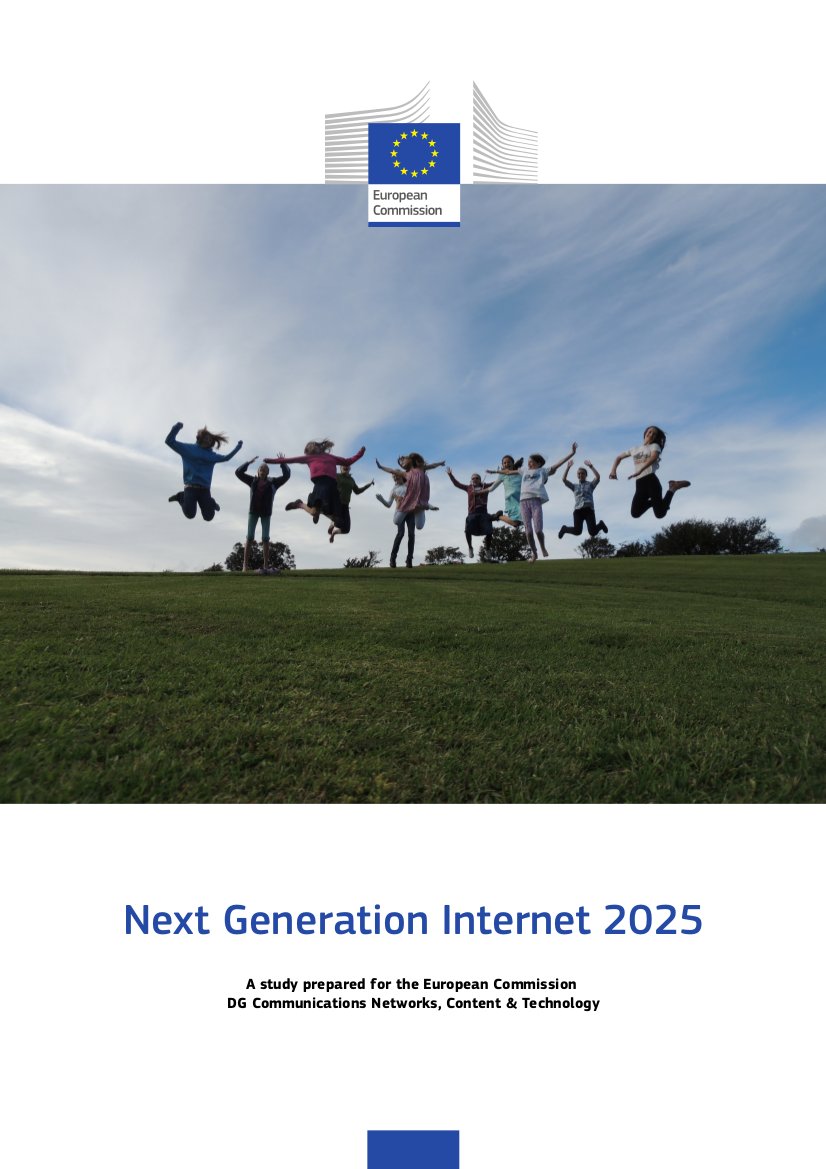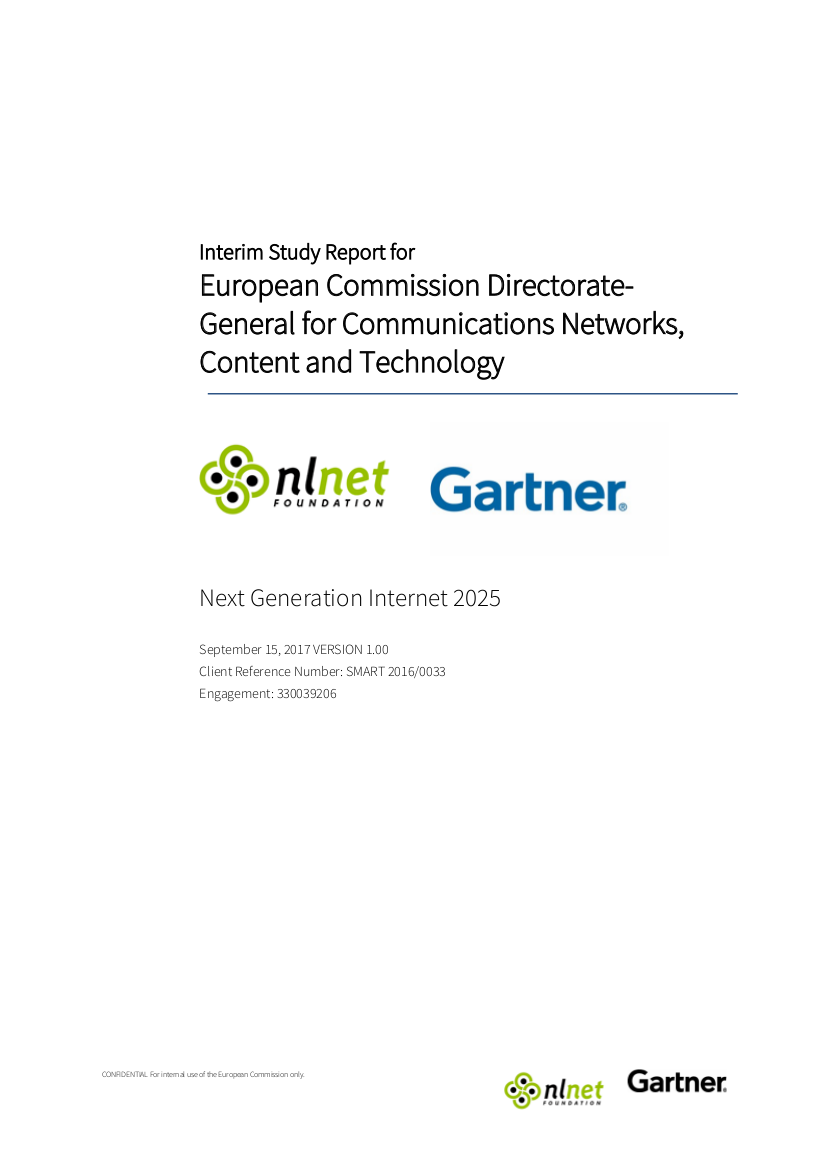Reports
Next Generation Internet
In the period 2017-2018 the European Commission commissioned a study to NLnet foundation and Gartner. The task of the project was to write a vision for the Next Generation Internet, prioritize research topics and advise on how do architect the initiative. The final report of this study was released on October 5th 2018.
Reports

NGI study report: Next Generation Internet 2025
EC Publication Office, October 5th 2018
Printed version: ISBN 978-92-79-86467-4
This report consolidates the outcomes of the study on the Next Generation Internet (NGI) 2025 performed by NLnet Foundation and Gartner, commissioned by the European Commission under SMART 2016/0033.
It presents the:
- Technological analysis on Next Generation Internet future key technologies and research topics explaining the technical issues involved, based on the current gaps today
- Key research communities and actors
- Impact of the research topics on the drivers for change which construct the Vision for an NGI
- Benefits linked to the research topics and the potential risks of not addressing them
- Recommendations to shape the programme for a Next Generation Internet Initiative based on specifc selection criteria
- The proposed NGI research topics for the H2020 programme
- The proposed NGI research topics for the Horizon Europe programme

Interim study report
NLnet/Gartner, September 15th 2017
This is an intermediate result of the study. It delivers an initial analysis of the outcome of the consultation held by NLnet and Gartner, prior to a dedicated expert workshop which was organised in Amsterdam later that month.
Introduction
Background information
The internet is a technology ‘commons’ unlike anything before – a shared benefit and shared responsibility for all of its users. It was never designed to perform the tasks it is expected to perform, and it is certainly not future proof as-is.
We need to do better in making sure that the internet as a shared global technical and social infrastructure is able to carry its heavy responsibility. This is especially relevant as we are about to embark on fascinating new journeys where we depend entirely on a safe, secure and open internet as a carrier - including an expected flood of connected devices on the outside and inside of our bodies, vehicles, buildings and infrastructure.
Trust at a global scale does not come for free: at the heart of sustainable trust lies actual trustworthiness that requires significant investment of time and resources. Research shows that while users may not always understand the way the technology works, they understand very well that the internet they want and need is an open, reliable internet that they can trust without any reservation whatsoever.
In recent years it has become all too clear that in addition to the obvious scalability issues there are many unforeseen persistent security and privacy challenges. Many of the challenges can be solved, and in fact working solutions are often known, but the transition at internet scale requires a systemic approach in addressing deep underlying technical issues, creating transition mechanism - as well as (in some cases) changing legal and governance parameters.
Introducing the Next Generation Internet initiative
This complex and precarious situation won’t fix itself, and needs significant research investment as well as a concerted strategic effort. If we want people to trust the internet with – in essence – their private and social lives, as well as their business and government, the technology itself needs to be entirely trustworthy. The European Commission’s DG CONNECT is therefore embarking on the Next Generation Internet initiative.
The NGI initiative wants to support the creation of an internet that supersedes the current internet, which supports citizens and businesses push further the frontiers of technology, an internet which retains people's trust in the online environment as well as their internet engagement, which is more human-centric and which offers the same fair opportunities to everyone (level playing field). Europe aims to shape this future Internet as a powerful, open, data-driven, user-centric, interoperable platform ecosystem.

